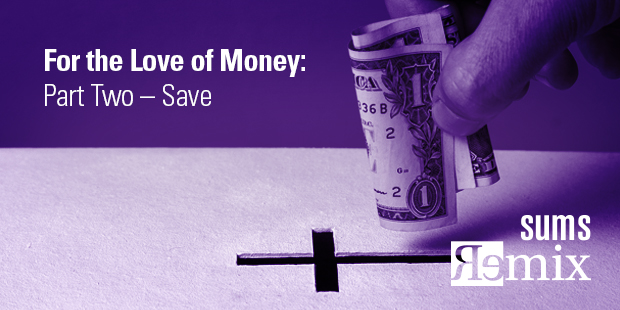
For the Love of Money: Part Two – Save
John Wesley, the founder of the Methodist Church, preached many times over the course of his life on the topic of money. To take Wesley’s sermon “The Use of Money” seriously would require a whole new way of thinking about how we earn and use money in a world in which others are in want.
As church leaders wrestle daily not only with their individual circumstances but also those of the organization they lead, it would be helpful to revisit Wesley’s 18th century sermon and learn applications for today.
In each section below, the “Simple Solution” lists a portion of Wesley’s sermon, his most concise articulation of his views on how to use money. The sermon excerpts are adapted from John Wesley on Christian Practice: The Standard Sermons in Modern English, by Kenneth Cain Kinghorn.
THE QUICK SUMMARY – More or Less by Jeff Shinabarger
In More or Less, Jeff Shinabarger calls readers to create their own social experiments to answer the question, “What is enough?”
It all started with one idea: What would happen if we created a culture in which we gave away whatever was more than enough for us? How would our habits change if we shed the excess of money, clutter, and food in our lives?
In More or Less, readers will learn how to draw a line of “enough” in their consumer choices, how to see generosity as a chance to experience freedom in a greedy world, and how to make small changes now that will help others forever. As Shinabarger reminds them, defining “enough” is more than a responsibility—it is an opportunity to give hope.
A SIMPLE SOLUTION
Here is the second rule of Christian prudence: As you gain all you can, by honest wisdom and tireless diligence, save all you can. Do not throw your precious gains into the sea. Do not waste your resources on trivial expenses, which is the same as throwing your money into the ocean.
Do not waste any of your precious resources merely in gratifying the desires of the flesh. Do not try to obtain any kinds of physical pleasures, especially in cultivating a taste for various foods. Cut out all these unnecessary expenditures. Despise delicacies and variety, and be content with the simple food that nature requires.
Do not waste any part of your valuable resources gratifying the desire of the eye with extravagant or expensive clothing or needless accessories. Waste no part of your money fancifully adorning your houses with unnecessary or expensive furniture. Avoid expensive paintings, portraits, decorations, books, and elegant (rather than useful) gardens.
Would we spend anything to gratify these desires if we realized that when we cater to them we only increase them? Nothing can be more certain than this truth. Daily experience reveals that the more we indulge our desires, the more our requirements grow. Therefore, whenever you spend anything to please your tastes or your other senses, you are paying only to satisfy your sensuality.
We have an uncanny ability to accumulate things that are not essential to living, yet we lack the practice of releasing the acquired junk when it no longer serves a purpose.
What is enough?
This may be the most critical question of our generation. More important, it may be the most critical question of our personal lives. If we do not make a personal choice to draw a line, we will be taken over by desire.
Defining enough is our personal responsibility. We won’t recognize enough in our lives unless we have taken the time to define that line. Defining enough leads to a freedom in life that is just waiting to be experienced, breaking the bondage of our ever-increasing desires.
When I define enough, I step off the conveyor belt of consumerism and create my own rhythm of life. Over time, advertisers, credit cards, and the quest for more and better lose their control over me. I no longer feel pushed around by others telling me what I need and want. Enough is a realistic measuring stick – one that offers me attainable and sustainable goals for life and the pursuit of my calling. Sometimes less can do more.
Jeff Shinabarger, More or Less
A NEXT STEP
Author Jeff Shinabarger states that the dictionary defines enough as “adequate for the want or need; sufficient for the purpose or to satisfy desire.”
As he notes, this definition is endless, and leaves space for anything. The definition of enough cannot be defined by or for others. Enough isn’t a percentage of your income. There is no simple formula. Each person must define what is enough individually.
The author recommends the following to keep the focus of enough on yourself:
On a piece of paper, sketch a line with a plus sign (more than enough) on one end of the paper and a minus sign (less than enough) on the other.
– +
Ask yourself, where am I on this spectrum for the following topics? Do I need more or do I want more? When will I have enough?
- Housing
- Food
- Clothing
- Transportation
- Presents
Some topics may bring great conflict to your life, while in other areas you will be content. The important thing is to draw your line of enough.
After completing and discussing this exercise with your spouse or household, as applicable, outline one next step or course of action to pursue for the next 90 days.
Excerpt taken from SUMS Remix 97-2.

Tags: Budgeting, Home Budget, Jeff Shinabager, More or Less, Save












